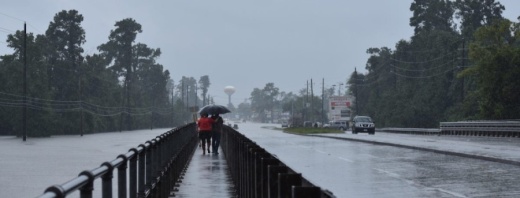Hurricane season runs from June 1-Nov. 30, and Lindner shared the following tips for preparedness at the April 20 Cy-Fair Houston Chamber of Commerce meeting.
Buy flood insurance. Because flooding is not covered by homeowner’s or renter’s insurance, Lindner said flood insurance is crucial. Policies typically go into effect 30 days after purchase.
“There really is no flood season here. We can flood any time,” he said.
While only 25% of county residents have flood insurance, Lindner said the average flood insurance payout after Hurricane Harvey was $120,000 compared to $5,000-$8,000 those who did not have flood insurance received in assistance from the Federal Emergency Management Agency.
Compile a disaster supply kit. A comprehensive disaster supply kit should include seven to 10 days of food and water, first aid supplies, cash, tools, medications, a flashlight with extra batteries, a battery-powered radio, pet food and supplies, sanitation items, important family documents and comfort items.
Make a plan. Households should have a plan in place covering communication, special needs considerations, knowing how to shut off utilities and deciding when to evacuate and when to shelter in place. Visit www.readyharris.org to learn more about evacuation zones and routes based on location.
“Everybody talks about the decision to evacuate, but sometimes the decision not to evacuate is just as important as the decision to pull that trigger,” Lindner said.
Stay informed. Lindner recommends following official sources such as www.harriscountyfws.org, which reports the latest local rainfall levels. Additional information about preparation and updates in case of a disaster can be found at www.readyharris.org, www.houstontranstar.org and www.ready.gov.





